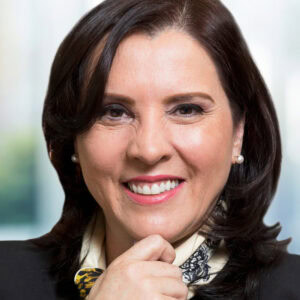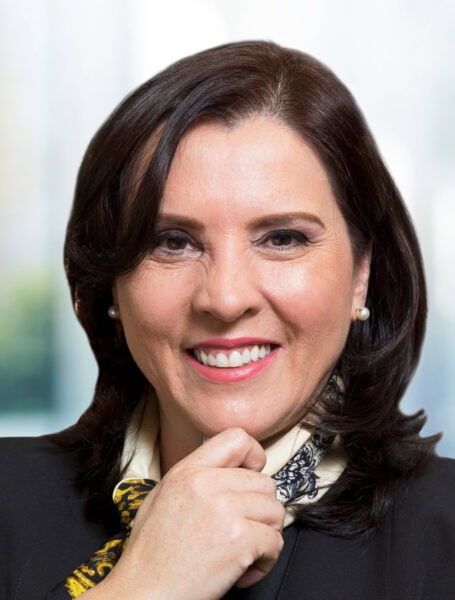
At the 2025 Street Smart Brazil event, CIOs, IT executives and finance leaders from across the country took center stage to talk candidly about the future of ERP, cloud strategy and the sweeping effects of upcoming tax reform. The event was an opportunity for panelists and attendees alike to discuss top priorities, concerns and challenges amongst peers.
What emerged was a portrait of how South America’s technology innovation is marked both by caution and a growing appetite to break from the status quo. Whether wrestling with vendor push to S/4HANA, reevaluating cloud costs or preparing for regulatory upheaval, the common thread was that Brazilian leaders are charting a business-first, technology-second path to bring forth innovation, turning to hybrid architectures, pragmatic strategies, and support of Rimini Street to get there.
Accelerating innovation with existing core systems
The first discussion featured a group of CIOs who set the tone for the event right off the bat with an integral message: “major steps are led by courage.” That courage, they explained, means being willing to question the assumption that modernizations must always follow SAP’s lead.
Many of the panelists represented companies with deep ERP roots across retail, financial services and manufacturing. Despite their complex environments, these companies have resisted the pressure to migrate their current SAP systems.
Instead, they’re leaning into non-migration strategies, microservices and composable architectures. This is all in the effort to explore ways to decouple innovation from the push to cloud. For many, that means investing in solutions that extend the life of ECC and utilize their existing custom assets to allow them to innovate faster than if they were to go through a cloud migration. “We didn’t need to stop to do an upgrade – and Rimini Street and ServiceNow® enabled us to still deliver what our business needs,” one speaker said. “We’re making the most of our time and our limits – we believe this way makes so much more sense.”
There was also a shared awareness that resisting vendor timelines isn’t about standing still. It’s about choosing transformation on their own terms and redefining sales jargon that insists existing mission-critical systems are a hinderance. “We are on ECC 6.0 but we don’t see it as a limiting factor – it’s a strategic part of our solutions,” noted another speaker.
When asked about what’s next for Brazilian technological advances, another leader spoke about reshaping their growth strategy entirely: “We have a strategic investment that started in 2022, and we want to gross double what we did in 2022 by 2028 – and do so by preserving our current systems.”
Preserving flexibility is a priority
Much of the conversation centered around the fallout from vendor consolidation, especially the uncertainty around VMware’s acquisition. Attendees were concerned not just about pricing changes, but about loss of control. “The cost of licensing is immense,” said one speaker. “And they do what they can to make you a hostage of the technology you choose.”
“Pushed to the cloud, you’re going to have an overwhelming number of technological options, not all useful for your business,” another panelist warned. “We [have] to examine what’s needed and what is available in the market, and decide smartly.”
The sentiment that flexibility matters more than vendor loyalty was echoed again and again during the panel. In this vein, some panelists described building internal playbooks to prepare for contract changes. “You need to be careful in order to avoid lock-in. If you have to commit to use one cloud, it’s no longer a good choice,” explained another executive. “There were cases in which costs went up 15 times.”
Rather than default to giving up control, companies were instead turning to hybrid paths. “We chose hybrid. Our SAP is on prem and everything else is on the cloud,” said one speaker, describing a tailored approach that matches workloads to the most cost-effective and manageable environment. “Cloud isn’t necessarily as conducive to the future as a hybrid approach can be.”
At this event specifically, the most forward-looking companies weren’t chasing technology for its own sake, they were leveraging negotiation power, understanding licensing models and using core architecture as a base for success: “You have to stop and think again. Every four or five years, think about where you’re heading to. There is no one-size-fits-all. If you can, predict what’s going to happen in the next five years – and then negotiate.”
Even those who embraced the cloud justified their recalibration efforts with this new understanding of where the future of ERP is heading. Panelists explained that it would be wise to re-expand horizons based on how quickly things are changing. “Nobody had ChatGPT three years ago. Look at the rate of change! Transformation is not about choosing between on-prem and cloud – it is about staying agile and making sure investments are going to be worth it in the next 5 years.”
Tax reform and supporting change
In another panel, the important topic for the region – tax reform – was the buzz. The conversation revealed the upcoming reform as one of the biggest transformation drivers Brazilian enterprises have seen in years, especially with current business systems not designed to operate with multiple tax regimes.
With the first fiscal milestone coming in January 2026, companies are under pressure to adapt their systems, retrain staff and build new layers of governance quickly. “It’s not only a tax reform, but it also actually represents a reform of the business,” one panelist said. “So, you have to be at the forefront.”
Crucially, this reform isn’t just a finance issue. It affects supply chains, logistics, technology systems and investment plans. “This is going to have a major impact in the next 10 years,” said one senior advisor. “There are many challenges here and we see it from the standpoint that from inside we have a great compliance challenge. It’s not an IT project, it’s not a fiscal project – it’s a corporate project”
Panelists agreed the transition is daunting, but also potentially transformative. They all agreed that utilizing third-party support was one of the more effective ways to keep costs down in this tax reform era. “We had to prioritize investment, the budget is finite,” one panelist said. “We rely on [our partners], so that happens smoothly.”
Perhaps most compelling were the voices urging companies not to see compliance as a burden, but as an opportunity. “You should not see yourself as a victim,” urged another panelist. “There are opportunities. You need to think about how you can optimize your company’s status.”
For many, this reform is sparking new cross-functional collaboration and renewed attention to system integration. Through it all, the philosophy of keeping core systems running strong and not making volatile changes to existing systems so internal resources teams can focus on innovation is proving increasingly relevant as AI booms and tax reform looms.
Investing in Brazil’s future – together
Throughout the event, there was a strong, optimistic sense that Brazilian enterprises are stepping into a new phase of business, defined less by following global vendor mandates and more by rooting their innovation around local needs.
For Rimini Street, the Street Smart event was also a milestone moment, celebrating 10 years of success and continued growth. That same week, the new office in São Paulo was opened to the public, a supercenter supporting clients globally, fostering new innovation capabilities, and serving as a home to an expected 1000 top talent in coming years.
Learn more about Rimini Street’s flagship executive events and join your peers as we usher in a powerfully transformative, business-first future together.

